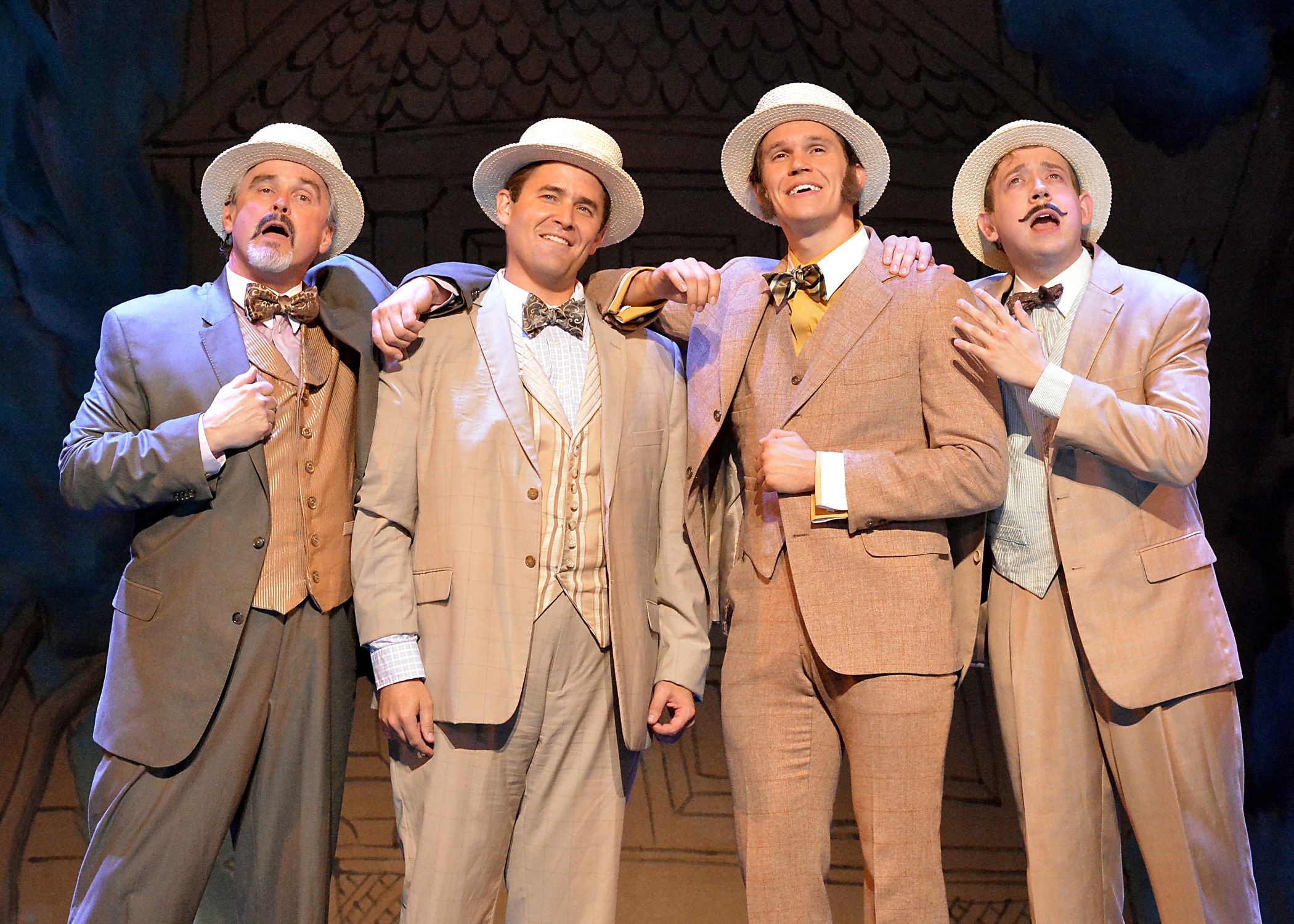

I’ve seen it be thrilling as recently as 2018, in a Stratford Festival production that didn’t shy away from the chance it offers to explore class differences and, with a Black Harold Hill, even racial ones. (At one point he refers to Marian as his “commission.”) In light of that, it seems foolish merely to change a lyric here or there in the dopey dance tune “Shipoopi,” the couplet “the girl who’s hard to get … but you can win her yet” has become suddenly enlightened as “the boy who’s seen the light … to treat a woman right.” You can’t really remove it from the main story Hill’s modus operandi involves seducing piano teachers and leaving them flat. Same with the show’s treatment of men’s casual harassment of women.


The boy who is secretly dating the mayor’s daughter is no longer the son of “one a’them day laborers south a’town,” presumably because the suggestion of class prejudice is too hot for a comedy to handle in 2022. Running shorter than its advertised length, this revival cuts a lot, eliminating even minor details that might cause offense.

This production rightly omits, for instance, the “Wa Tan We” girls of the “local wigwam of Heeawatha” and their “Indian war dance.” Even though such ludicrous appropriations are authentic to the setting, a musical comedy need not be a documentary.īut omit too much and what’s left lacks texture. I suppose you could argue that an old-fashioned show deserves an old-fashioned staging like the kind that worked for “Dolly” - and it’s certainly true that “The Music Man,” as written, includes some antique elements that give us pause today. But even when the barn disappears completely, the staging feels two-dimensional - and so old-fashioned (except for the astonishingly good dancers performing Carlyle’s athletic choreography) that it might have come straight from 1957, when “The Music Man” premiered on Broadway. The central element of Loquasto’s set is a full-width barn wall whose doors occasionally slide open to reveal vignettes played out against drops painted in the style of Grant Wood (another Iowan). Unfortunately, that flatness is endemic to the production. “My White Knight,” an aria that is usually a rangy highlight of the role, is performed here in a lower key and as fast as possible it comes off less as a stratospheric dream than a street-level race, making Marian sound, and thus feel, pretty much like everyone else. In her high-flung songs she works too hard to force the bloom when what’s needed is ease and exuberance. Though Foster can sing the required notes, she is really a belter, with a mezzo quality to her voice regardless of the pitch. Instead we get an extremely neat, generally perky, overly cautious take on a musical that, being about the con game of love and music, needs more danger in the telling. The frenzy of love unleashed in that show by Bette Midler, supported by substantially the same creative team - including the director Jerry Zaks, the choreographer Warren Carlyle and the set and costume designer Santo Loquasto - has gone missing here, despite all the deluxe trimmings and 42 people onstage. Until then, the musical, which opened on Thursday night at the Winter Garden Theater, only intermittently offers the joys we expect from a classic revival starring Hugh Jackman and Sutton Foster - especially one so obviously patterned on the success of another classic revival, “Hello, Dolly!,” a few seasons back. Unfortunately, that moment is the curtain call. There comes a moment in the latest Broadway production of Meredith Willson’s “The Music Man” when high spirits, terrific dancing and big stars align in an extended marvel of showbiz salesmanship.


 0 kommentar(er)
0 kommentar(er)
